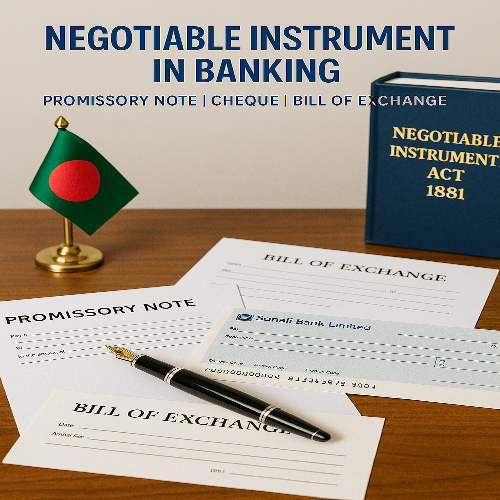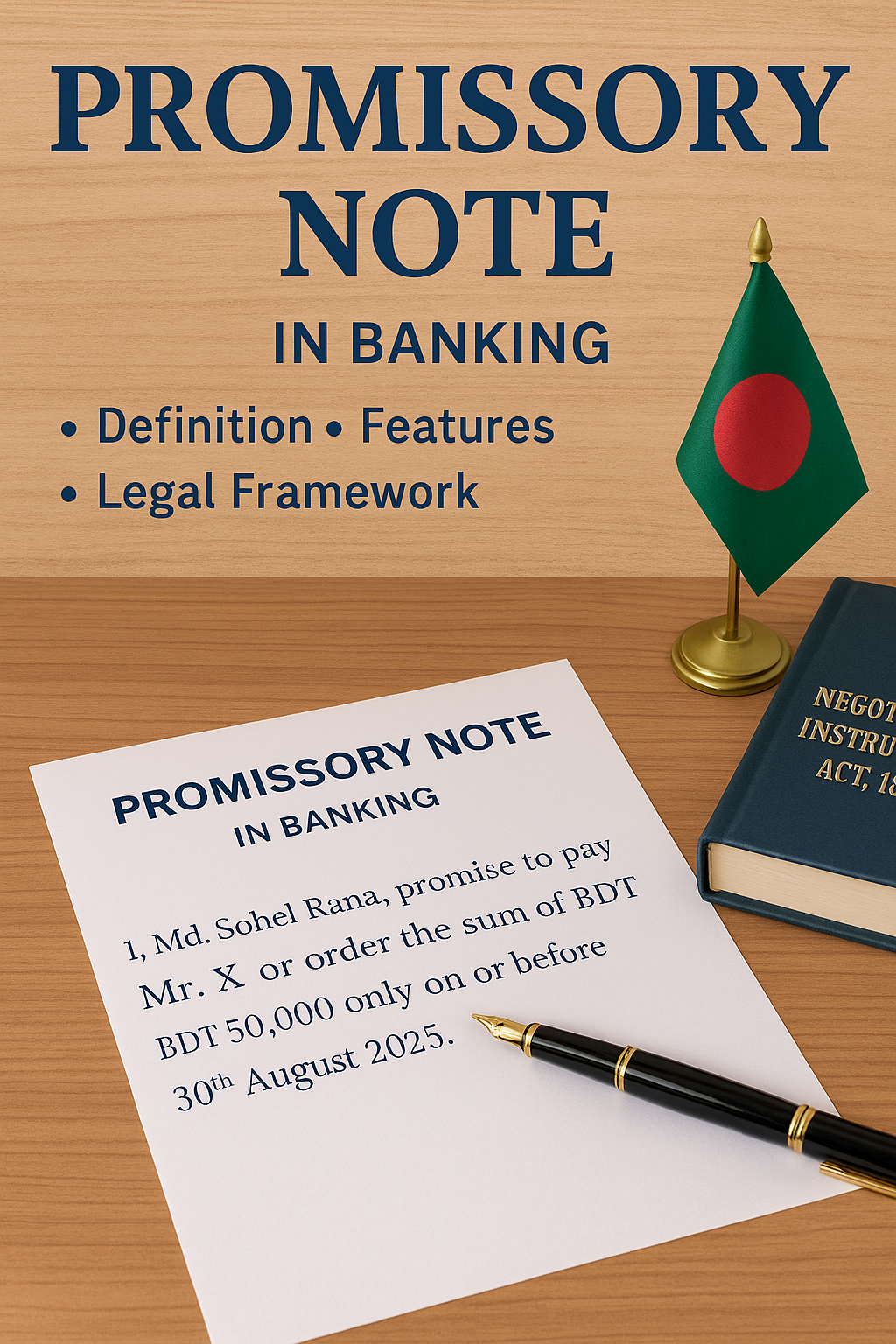Negotiable Instrument – Definition, Features & Types
Published on: July 6, 2025 | Category: General Banking
What is a Negotiable Instrument?
A Negotiable Instrument is a written document guaranteeing the payment of a specific amount of money either on demand or at a set time, with the payer named on the document.
In Bangladesh, the rules governing these instruments are laid out in the Negotiable Instruments Act, 1881.
Key Features of Negotiable Instruments
- Transferable from one person to another
- The transferee gets the full legal title
- Must be in writing
- Should be signed by the maker or drawer
- Unconditional promise or order to pay
- Payable either on demand or at a future date
Types of Negotiable Instruments
Under the Act, there are mainly three types of negotiable instruments:
- Promissory Note: A written promise to pay a specific sum to a specific person.
- Bill of Exchange: A written order from one person to another to pay a specified amount to a third person.
- Cheque: A bill of exchange drawn on a banker payable on demand.
Importance in Banking
Negotiable instruments play a vital role in the modern banking system, especially for clearing payments and ensuring smooth commercial transactions.




